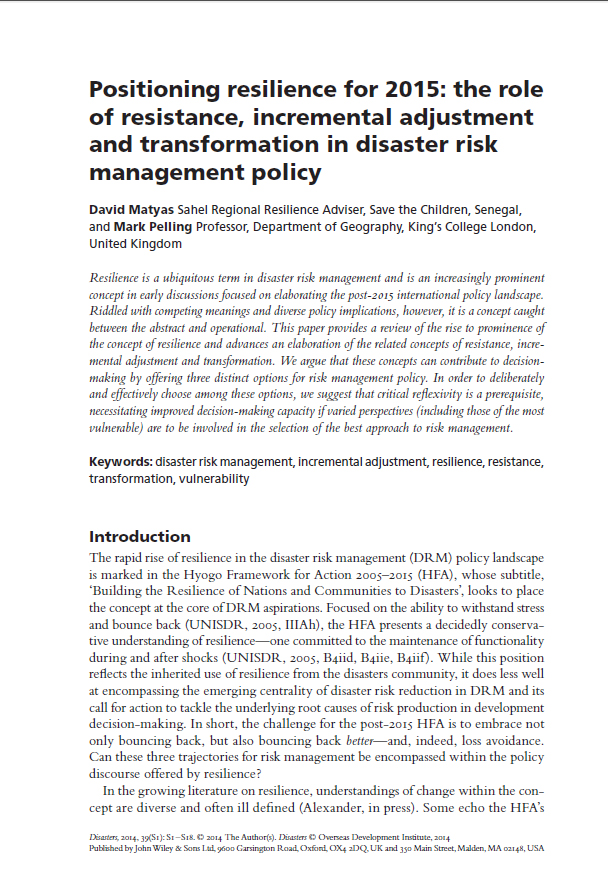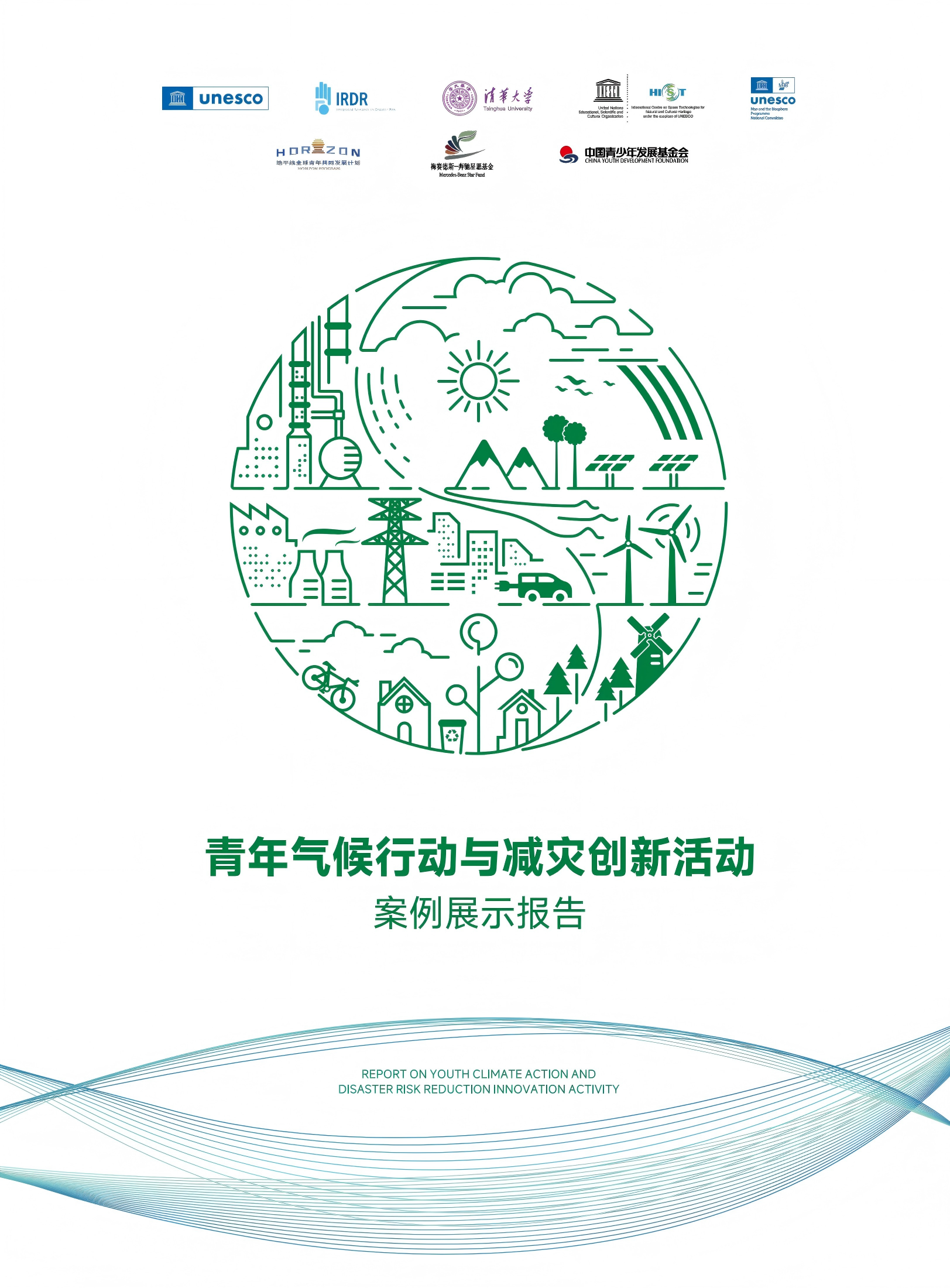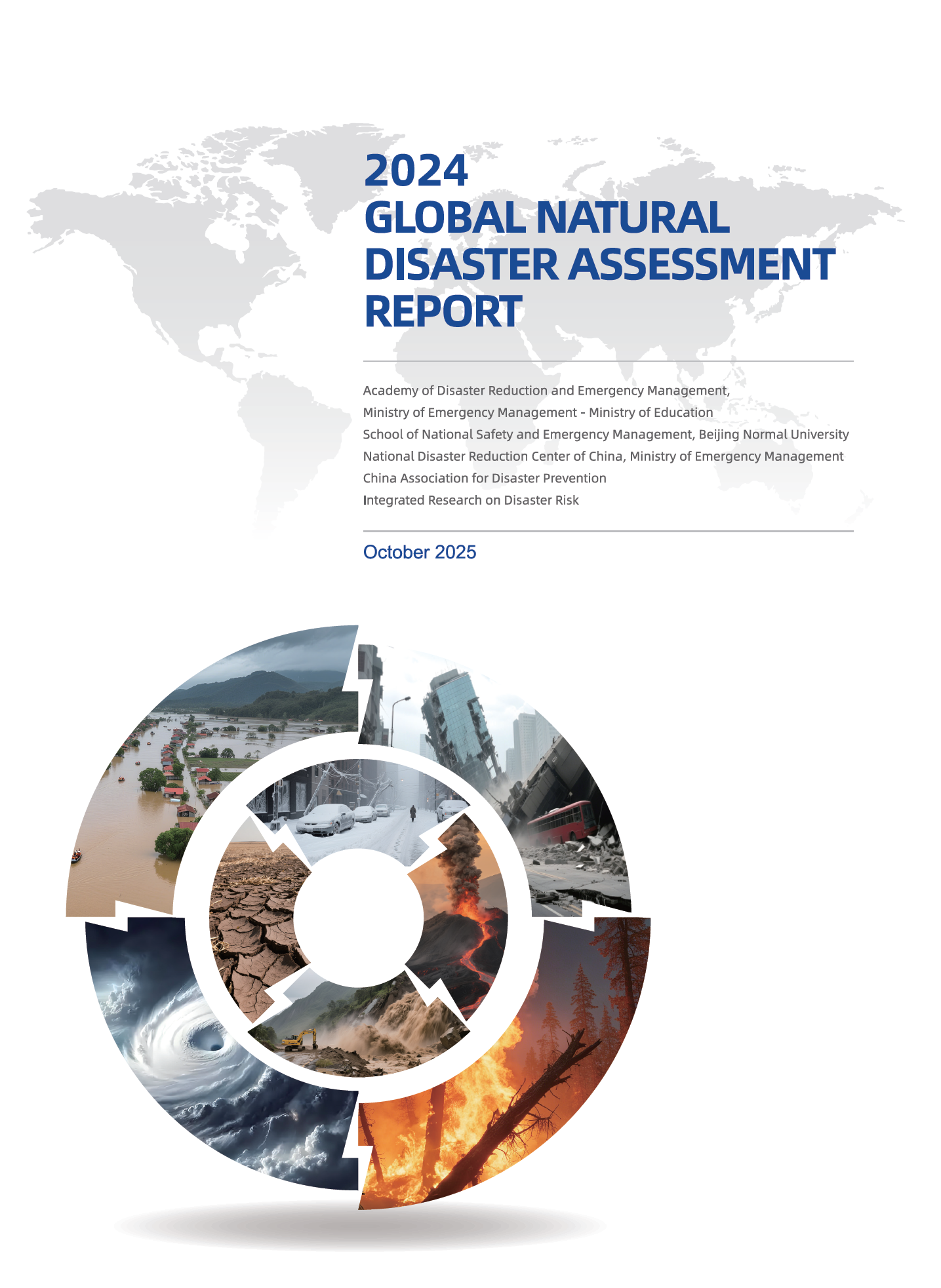David Matyas Sahel Regional Resilience Adviser, Save the Children, Senegal, and Mark Pelling Professor, Department of Geography, King’s College London, United Kingdom
Abstract
Resilience is a ubiquitous term in disaster risk management and is an increasingly prominent concept in early discussions focused on elaborating the post-2015 international policy landscape. Riddled with competing meanings and diverse policy implications, however, it is a concept caught between the abstract and operational. This paper provides a review of the rise to prominence of the concept of resilience and advances an elaboration of the related concepts of resistance, incremental adjustment and transformation. We argue that these concepts can contribute to decisionmaking by offering three distinct options for risk management policy. In order to deliberately and effectively choose among these options, we suggest that critical reflexivity is a prerequisite, necessitating improved decision-making capacity if varied perspectives (including those of the most vulnerable) are to be involved in the selection of the best approach to risk management.
Acknowledgements
This paper is a product of the UK Government Office for Science Foresight project on Reducing Risks of Future Disasters: Priorities for Decision Makers.
Correspondence
Professor Mark Pelling, Department of Geography, King’s College London, K7.52 King’s Building, Strand Campus, London WC2R 2LS, United Kingdom.
Telephone: +44 (0)20 7848 2462; e-mail: mark.pelling@kcl.ac.uk






